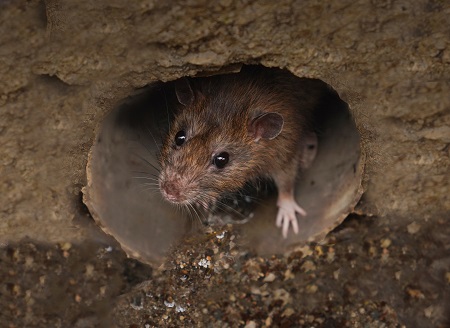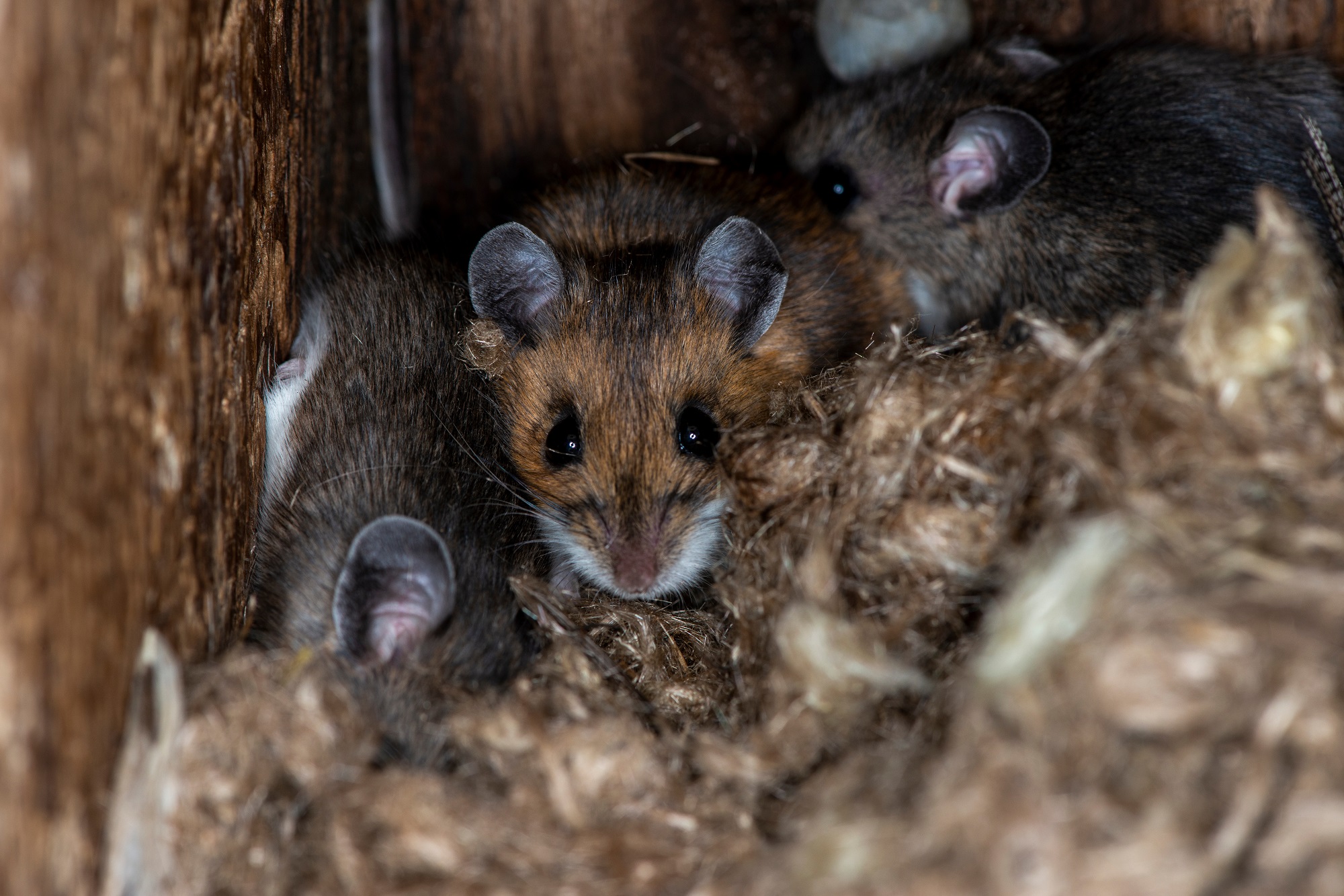Rats and mice are very different, even though you would never know it by looking at them. This post will help you differentiate between a mouse, a rat, and other rodents. We will also suggest when you should seek out professional rodent control services.
What Is a Rodent?
Rodents are a group of animals consisting of mice, rats, hamsters, squirrels, etc. These animals are also sometimes called “small mammals.” There are about 25 different types of rodents in the world that often share some common physical characteristics. Rodents have oversized and sharp incisors that stand out from a distance. They also have small eyes with a generally more petite body except for porcupines or capybara’s that may weigh up to 100 pounds.
What Is the Difference Between a Rat and a Mouse?


Now that we know that both mice and rats fall under the category of rodents let us look at the differences between the two:
Physical Appearance
A mouse has a long and thin body with ears that are not too large. Mice also have chunky feet; these help them run fast and jump from place to place. Mice are usually brown or gray, with some species having white patches on their fur. A mouse’s tail is generally larger than its head and body. These tails help them balance when they are jumping from place to place and sense dangers that may be approaching.
On the other hand, rats have larger bodies, ears, and tails than mice. They are usually brown or black, except for some species with white patches on their fur. Rats’ tails are about equal to the size of its head and body.
Size
A mouse is much smaller than a rat. Mice are about three to four inches long, with tails that could be up to an inch or two longer. This allows them to fit through smaller holes and cracks when escaping a predator. It’s easy for them to cohabit with humans without easily being noticed.
On the other hand, rats are usually between thirteen and eighteen inches long, with tails four or five inches longer than that. They prefer to live outside and will only venture into homes in search of an easy meal.
Teeth Differences
Mice have small teeth that never stop growing. Although rats have larger teeth, they can continue growing as well. Both of these rodents must gnaw and chew enough to wear down their incisors in order to maintain good health.
Habitat Differences
Mice live in many different places, such as houses and barns, and even in the wild. They usually live near humans, making it very easy to see one running across your kitchen floor! Rats prefer areas such as sewers, basements, or small locations like garbage cans. These creatures can be harder to spot, especially because they only come out at night. Both rodents look for areas with abundant food sources.
Diet Differences
Because rats have larger bodies, they must consume more food to sustain themselves. They prefer high-protein foods such as meat, cheese, and even pet food! That is why you see them scurrying around garbage cans or sewers in search of food! Mice have smaller bodies and require much less food to survive. They prefer a healthier diet that consists of fruits, vegetables and grains.
Behavioral Differences
Rats are much more social than mice. They live in large groups called packs and have a very well-developed social hierarchy system, where each rat has a role to play within the group. Meanwhile, mice prefer living alone, especially in the wild. Mice do tend to stick together in confined spaces as well.
Who Causes More Damage Between Mice and Rats?
Rats are the bigger of the two rodents, and they cause damage to homes by gnawing on electric wires. This can cause a fire hazard and an electrical shortage, leading to thousands of dollars in damages! Mice tend to chew through siding, insulation, or wood around a home, looking for food. Their chewing leaves small holes all over the outside of a home, letting in other pests, such as bees and wasps.
What Are the Other Types of Rodents?
Rodents are one of the most populous creatures on earth. While humans domesticate some as pets, others live in the wild. The more common rodents you know besides mice and rats include:
- Squirrels
- Chipmunks
- Gophers
- Groundhogs
- Hamsters
- Guinea pigs
- Porcupines
Can Rodents Cause Diseases?
Rodents are known to carry around diseases. The major culprits are mice and rats, known to spread salmonella or hantavirus! This is why it’s important to call a pest control service the moment you spot signs of a rodent infestation. They may be bringing along some dangerous germs with them.
Contact Anteater Exterminating for Professional Rodent Control
You’ll appreciate contacting Anteater Exterminating for our professional rodent control, especially if you’re dealing with a mouse infestation. Mice, labeled as ‘mammalian weeds,’ have adapted to thrive in a diverse range of environments, making them a persistent pest worldwide. Their small size and secretive nature enable them to cohabit with humans, often unnoticed.
Now, let’s discuss the prolific breeding habits of mice under conducive conditions. Given a fragmented food supply and suitable harborage sites, the mouse population can skyrocket to hundreds, even thousands. What’s more, indoor mice establish nests in various structural locations, maintaining relatively short home ranges.
You’d be mistaken to think that these critters have predictable feeding behaviors. Mice are opportunistic feeders, making the most of available human food sources. This erratic feeding pattern makes control measures more challenging.
That’s where Anteater Exterminating comes in. With our expert knowledge of rodent species, we can effectively manage and control these unwanted pests. Our pest control technicians understand the biology and behavior of mice, allowing us to implement targeted strategies to eliminate these mammalian weeds from your home. Trust Anteater Exterminating to protect your property from these pest infestations.
Contact us today for quality rodent control services and exceptional customer service.
Pest control services we provide:
- Mice and Rat Removal Treatments
- Termite Control
- Ant Control
- Spider Control
- Scorpion Control
- Bee Removal Services
- And More
Visit our About Us page for more information about our pest control company. Visit our Client Testimonials page to see what our customers have to say about us.

